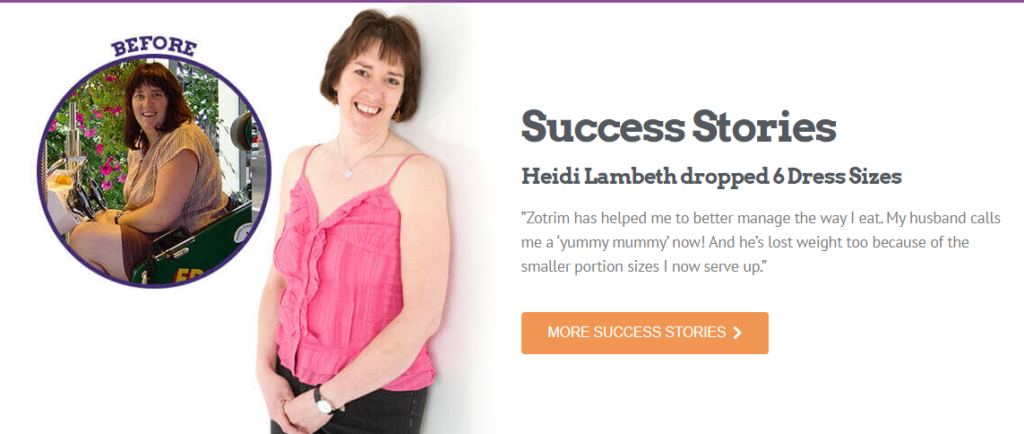
Table of Contents
Introduction
Are you more of an exercising foe than fan? That’s fine! You can get slim without reaching for the weights or for some, even worse — doing cardio.
Yes, exercising is highly recommended, but there are a few tricks you can do that don’t require sweating and can still help you get slim.
Exercising is one important factor to getting slimmer because it helps you burn more calories, and more calories burned mean more pounds lost.
What if you hate exercise? Is it necessary to get slim? It definitely helps you stay healthy (by increasing your heart rate, building muscle, etc.). But, it is not mandatory.
While exercising is perfect for some people, it is by no means your only option when it comes to getting slim. The truth is that exercising is not for everyone.
Whether you’ve had a bad experience in the past or just don’t like the idea of working out, read these tips to get that slim body you desire without exercise!
Get Enough Sleep
Have you ever noticed that when you’re tired you tend to eat more?
This observation is supported by science: Studies have shown that people who are tired tend to put more food in their mouths. There is, of course, some debate as to why.
Some studies have shown that people produce more ghrelin, a sleep hormone that stimulates appetite. But the problem is not just physiological. It is psychological.
In brain scans of people with sleep deprivation, the part of the brain involved in rewards and pleasure, lights up more when eating than other well-rested individuals.
Eating is more rewarding and satisfying and is likely to create this refreshing cycle: you eat, and then you want to eat more. In addition, a tired brain has less control over its impulses than that of a well-rested individual, who can, therefore, moderate their diet much better.

Eat More Protein
Protein is a fundamental part of a healthy diet and is necessary for an efficient metabolism and growth. Protein can increase satiety and delay hunger.
A survey of young women found that eating yogurt with high-protein as a snack, reduced hunger and calorie consumption in subsequent meals.
Simple ways to improve the amount of protein in the diet include adding a spoonful of hemp or chia seeds to breakfast cereals or adding more eggs to your diet.
Eat a Good Breakfast
That doesn’t mean stacking bacon, hash browns, sausage, eggs and pancakes, and eating that every morning!. Eat a protein-rich breakfast every day, and you will control your hunger all day.
Consider eggs, yogurt or peanut butter for breakfast. Don’t let more than three hours pass between meals. Make sure you have snacks available between meals.
Reduce Stress
Yoga can reduce stress and help you get slim. A high level of stress can also disrupt hormonal balance. When someone is stressed out, their body produces hormones called glucocorticoids, and for many, it can increase a person’s appetite and lead to weight gain.
Stress can also trigger emotional eating. Emotional eating is when one eats unhealthy food in an attempt to improve and control a negative mood.
Methods to reduce stress include:
- Reducing caffeine intake
- Practicing meditation or mindfulness
- Spending time outdoors
- Trying yoga
- Saying no to non-essential commitments.

Get More Vitamin D
Some research shows that people with low levels of vitamin D in their blood tend to be obese and don’t exercise enough.
Other conditions related to low vitamin D include:
- Arthritis and Osteoarthritis
- Type 1 and Type 2 Diabetes
- Depression and Anxiety
- Metabolic syndrome
The sun is certainly one of the easiest places to obtain vitamin D. Egg yolks, fatty fish, some mushrooms and fortified food, also contain vitamin D
Eat Smaller Meals, More Regularly
Another way to get slim without exercising is to change your eating habits. Eating smaller meals throughout the day can speed up your metabolism and keep you full longer.
A research study found that people who ate six small meals a day had a lower BMI than people who consumed less than four times a day.
Eating more frequently stimulates the body to burn fat instead of muscle tissue and provides the body with the energy you can consume during the day instead of storing food as fat for later use.
Be Honest About Snacking
Eating snacks is fine, but it can get out of hand easily. If you are a serial snack eater, try announcing your snacks.
It may sound strange, but when you tell yourself or someone else that you are eating something, stop and think about how often you munch every day and what you’re eating.
Reduce The Size Of Your Plate
Most American dishes are 11 or 12 inches wide. However, if you stick to a 9 or 10-inch wide plate, it saves about 23 percent of the amount you serve (and eat) on your own. It is a simple, yet effective way to cut down on calories.
If you use a smaller serving spoon, you can serve 14 percent less with each meal. Over the course of several months, this can lead to a reduction in weight and food loss.
Serve Food In Multiple Small Portions
This method is particularly effective with buffets or snacks.
When eating at a buffet, you can take several small plates to divide the food, as opposed to stacking piles of food on large plate. When you eat, you can cut up snacks and place them on several small plates.
You may also try to divide meal times into several small plates instead of putting everything on one plate.
Try Mindful Eating
Mindful eating is an excellent weight management tool. It can help improve portion control and reduce appetite.
To practice mindful eating, one must avoid all distractions, including television, laptops, and reading material. It is better to eat at a table, focus on how the food tastes, and watch for signs that the body is full.

Eat More Slowly
Instead of scarfing meals, chew each bite at least 10 times before swallowing. The body has to work harder to break down larger chunks of food in the stomach and intestines, which can lead to severe gas and indigestion.
Also, if you eat quickly, you are more likely to swallow air, which can increase your risk of feeling a little bloated.
Weigh Yourself
Many people are in “fat denial”. As sad as it may sound, sometimes we avoid weighing ourselves because we’re afraid of coming face-to-face with reality.
Getting on the scale will stop that denial. It will not help you lose weight, but it can really prevent you from gaining weight, and serve as a wake-up call.
To weigh fairly, it is suggested that you step on the scale in the morning after going to the bathroom. Ideally, weigh yourself naked or, if that’s not feasible, weigh yourself with minimal clothing.
Do the same for seven days, recording your weight every day for a week. Then add the numbers up and divide by seven. This is your average (and more accurate) weight for seven days.
Depending on that weight, you can start a weight loss plan or decide to be happy where you are. It’s also important to keep in mind that the number on the scale isn’t everything. Muscle weighs more than fat and should certainly be considered in the overall wellness equation.
Add Milk To Your Breakfast
Pour the low-fat milk into your cereal in the morning, and you will get an incredible benefit. Diets rich in calcium-based foods have been linked to a healthier body weight.
Additionally, the minerals contained in dairy products (calcium, potassium, and magnesium) can help balance inflammation of sodium.
Conclusion
There are many ways to get slim without exercise. The tips above are a great way to make positive lifestyle changes.
Breaking sweat is great for your health and still highly recommended, but you don’t have to exercise to lose a few pounds.
If you change your habits in an easy and sustainable way, the yellow brick road will lead you to success — no membership fee is required.

References
https://www.ncbi.nlm.nih.gov/pmc/articles/PMC4469938/
https://nutritionj.biomedcentral.com/articles/10.1186/1475-2891-13-97
https://www.sciencedirect.com/science/article/pii/S0195666317306797?via%3Dihub
